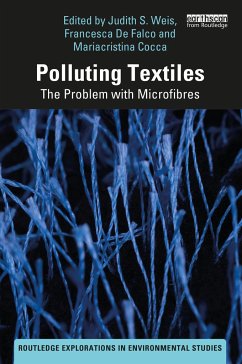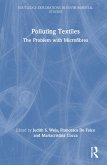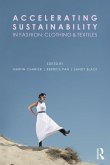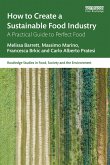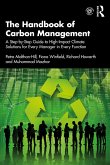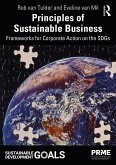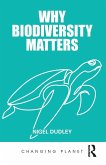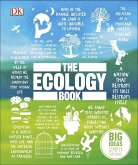This book examines the critical issue of environmental pollutants produced by the textiles industry.
Comprised of contributions from environmental scientists and materials and textiles scientists, this edited volume addresses the environmental impact of microplastics, with a particular focus on microfibres released by textiles into marine and freshwater environments. The chapters in Part I offer environmental perspectives focusing on the measurement of microplastics in the environment, their ingestion by small plankton and larger filter feeders, the effects of consuming microplastics, and the role of microplastics as a vector for transferring toxic contaminants in food webs. Written by environmental and material scientists, the chapters in Part II present potential solutions to the problem of microplastics released from textiles, discussing parameters of influence, water treatment, degradation in aquatic environments, textile end-of-life management, textile manufacturing and laundry, and possible policy measures. This is a much needed volume which brings together in one place environmental research with technical solutions in order to provide a cohesive and practical approach to mitigating and preventing environmental pollution from the textiles industry going forward.
This book will be of great interest to students and scholars of environmental conservation and management, environmental pollution and environmental chemistry and toxicology, sustainability, as well as students and scholars of material and textiles science, textile engineering and sustainable manufacturing.
Comprised of contributions from environmental scientists and materials and textiles scientists, this edited volume addresses the environmental impact of microplastics, with a particular focus on microfibres released by textiles into marine and freshwater environments. The chapters in Part I offer environmental perspectives focusing on the measurement of microplastics in the environment, their ingestion by small plankton and larger filter feeders, the effects of consuming microplastics, and the role of microplastics as a vector for transferring toxic contaminants in food webs. Written by environmental and material scientists, the chapters in Part II present potential solutions to the problem of microplastics released from textiles, discussing parameters of influence, water treatment, degradation in aquatic environments, textile end-of-life management, textile manufacturing and laundry, and possible policy measures. This is a much needed volume which brings together in one place environmental research with technical solutions in order to provide a cohesive and practical approach to mitigating and preventing environmental pollution from the textiles industry going forward.
This book will be of great interest to students and scholars of environmental conservation and management, environmental pollution and environmental chemistry and toxicology, sustainability, as well as students and scholars of material and textiles science, textile engineering and sustainable manufacturing.
"Our field should welcome this piece of writing with open arms. Although there are many writings about microplastics, microfibers are complex and include more than just plastic materials. I'm thrilled to see a comprehensive book, covering both science and solutions for microfibers specifically, led by a wonderful team of experts."
Chelsea M. Rochman, Department of Ecology and Evolutionary Biology, University of Toronto, Canada
"Microplastics are poorly understood but pose a serious environmental and public health risk. This book shines a light on the problem. Unlike what policy makers and society did with climate change, it is imperative that we listen to the scientists on this vital issue. This book will help do that."
Judith Enck, former EPA Regional Administrator and President of Beyond Plastics
"Microfibers - a form of microplastics - present significant challenges to scientists, policymakers, and the textile industry. This comprehensive book provides a summary of the state-of-the-science of the sources, pathways, monitoring techniques, and impacts of microfibers from leading scientists in this rapidly emerging field. Potential solutions to the hazards of microfibers and their added chemicals - from upstream measures such as policy and design innovations to downstream measures such as pollution pathway controls - are critically assessed through collaborations between textile professionals and environmental scientists alike."
Scott Coffin, Research Scientist at the California State Water Resources Control Board, developing health-based regulations for microplastics
"This book's investigation of microplastics is not only crucial for our understanding of the plastics problem for advocates and policymakers, it reveals the necessary shift textile manufacturers must make if we are to ever stop it." Stiv Wilson, CoDirector at Peak Plastic Foundation, creator The Story of Plastic film
"For a long time, textile microfibers have been simply considered as a sub-category of microplastics, thus preventing us from fully understanding the real extent of this global pollution issue. The publication of this book by an excellent team of authors provides us for the first time with all necessary tools to better comprehend this emerging pollutant, its sources, its impacts and the relevant solutions. Shifting the focus to fibres, and finally considering them as a very specific class of contaminants, represent a much-needed groundbreaking step in the right direction." Giuseppe Suaria, Research Scientist at CNR-ISMAR, Italy
"There are a number of different sustainability considerations across the entire life-cycle of textiles, including environmental pollution. This book highlights one important aspect of environmental pollution from textiles: microplastic fibers. Featuring prominent scientists in the field today, a wide array of problems and solutions are addressed in this collection which can serve as an important resource for those interested in reducing the negative environmental impacts of textiles from a number of different viewpoints." Denise Mitrano, Professor, Department of Environmental Systems Science, ETH Zürich, Switzerland
Chelsea M. Rochman, Department of Ecology and Evolutionary Biology, University of Toronto, Canada
"Microplastics are poorly understood but pose a serious environmental and public health risk. This book shines a light on the problem. Unlike what policy makers and society did with climate change, it is imperative that we listen to the scientists on this vital issue. This book will help do that."
Judith Enck, former EPA Regional Administrator and President of Beyond Plastics
"Microfibers - a form of microplastics - present significant challenges to scientists, policymakers, and the textile industry. This comprehensive book provides a summary of the state-of-the-science of the sources, pathways, monitoring techniques, and impacts of microfibers from leading scientists in this rapidly emerging field. Potential solutions to the hazards of microfibers and their added chemicals - from upstream measures such as policy and design innovations to downstream measures such as pollution pathway controls - are critically assessed through collaborations between textile professionals and environmental scientists alike."
Scott Coffin, Research Scientist at the California State Water Resources Control Board, developing health-based regulations for microplastics
"This book's investigation of microplastics is not only crucial for our understanding of the plastics problem for advocates and policymakers, it reveals the necessary shift textile manufacturers must make if we are to ever stop it." Stiv Wilson, CoDirector at Peak Plastic Foundation, creator The Story of Plastic film
"For a long time, textile microfibers have been simply considered as a sub-category of microplastics, thus preventing us from fully understanding the real extent of this global pollution issue. The publication of this book by an excellent team of authors provides us for the first time with all necessary tools to better comprehend this emerging pollutant, its sources, its impacts and the relevant solutions. Shifting the focus to fibres, and finally considering them as a very specific class of contaminants, represent a much-needed groundbreaking step in the right direction." Giuseppe Suaria, Research Scientist at CNR-ISMAR, Italy
"There are a number of different sustainability considerations across the entire life-cycle of textiles, including environmental pollution. This book highlights one important aspect of environmental pollution from textiles: microplastic fibers. Featuring prominent scientists in the field today, a wide array of problems and solutions are addressed in this collection which can serve as an important resource for those interested in reducing the negative environmental impacts of textiles from a number of different viewpoints." Denise Mitrano, Professor, Department of Environmental Systems Science, ETH Zürich, Switzerland

